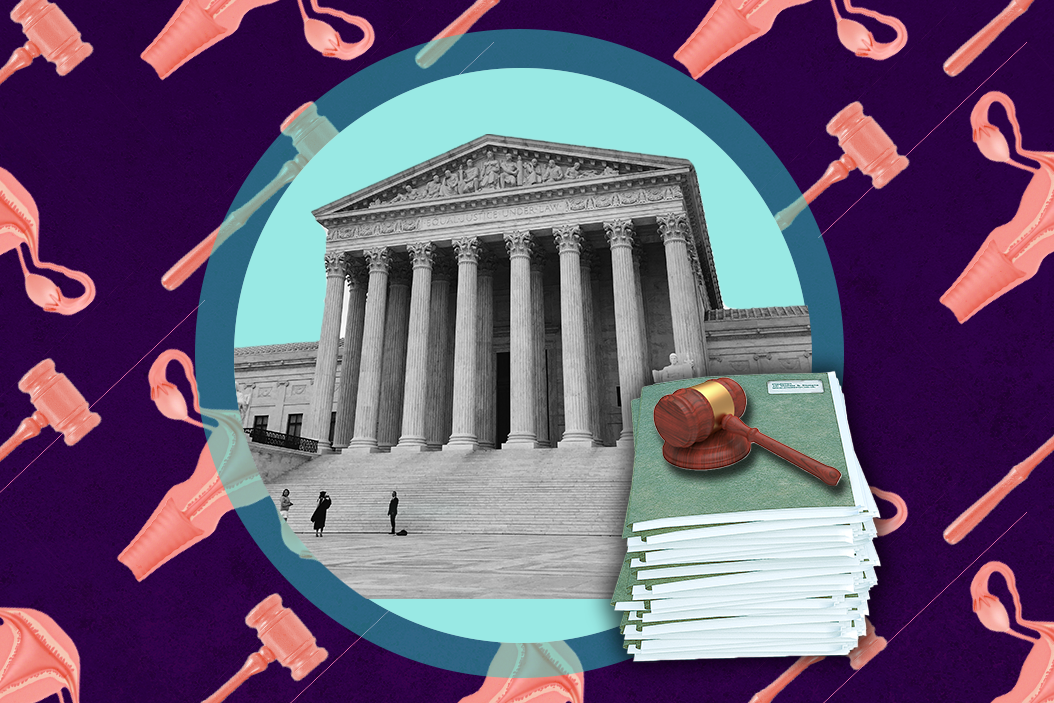May 03, 2022
The abortion debate, though universal, is also quintessentially American. Over the past 50 years, it has come to represent the increasingly vitriolic culture wars dominating US politics.
The temperature is again super hot after a leaked memo revealed that the US Supreme Court is set to repeal the 1973 landmark Roe v. Wade decision that legalized abortion nationwide.
A late night leak. Late Monday, POLITICO released a draft decision written by Justice Samuel Alito – a staunchly conservative judge appointed in 2005 by George W. Bush – that outlines the court’s intention to overturn Roe, which allows abortions up until the point of viability outside the womb.
It is still unclear who leaked the draft memo, but the Supreme Court says it is investigating, which is a remarkable admission for the notoriously tight-lipped institution. In the leaked decision, responding to a Mississippi law banning the procedure after 15 weeks gestation, Justice Alito writes that “Roe was egregiously wrong from the start.”
Red states are ready. Anticipating this moment (the Supreme Court has been stacked with conservatives in recent years), many red states have already prepared edicts that would allow them to outlaw abortion as soon as Roe is overturned. Legislatures in 13 states have passed “trigger laws” banning abortion that could go into effect immediately, while an additional 13 states have laws in place that would likely ban abortion after Roe, according to the Guttmacher Institute. Florida, for instance, is set to enforce a 15-week ban in July.
But even before the rollback of Roe seemed like a done deal, Republican-run states had introduced a host of TRAP laws, curtailing access for millions of women in the South and Midwest who now have to travel long distances to reach abortion clinics in neighboring states. (In Texas, for instance, doctors performing abortions are required to have admitting privileges at a hospital within 30 miles, which often isn’t possible for physicians from rural clinics.)
This problem will now get much worse. While abortion will remain legal and accessible in progressive states like New York and California, millions of women and girls who can’t afford a plane ticket – or to take days off work to drive across the country – will be left out in the cold. History shows that when rights are curtailed, women don’t stop seeking abortions; they simply find alternative ways to get them, often resulting in botched jobs and deaths.
The politics of it all. The Biden administration has expressed dismay at the news, warning that “a whole range of rights could now be at risk.” But could Democrats also use the gravity and timing of the revelation to their advantage? Indeed, the impending SCOTUS decision – and the culture wars it'll resurrect – could become a welcome pivot for Biden. The US president needs a respite from bad headlines, particularly those focused on surging food and gas prices that have caused his poll numbers to tank.
What’s more, highlighting this emotionally charged issue could be an effective “get-out-the-vote” strategy ahead of November’s midterm elections, particularly in battleground states like Ohio and Pennsylvania, where reproductive rights will be a key electoral issue. Still, even though most Americans back Roe, there’s no guarantee that this will energize Democrats and independents in the right places to decide key races. Winning bigger in deep-blue states and cities is welcome, but it won’t move the needle where it matters.
Democratic lawmakers spanning the ideological divide immediately renewed calls for Congress to codify abortion rights into federal law. But that would require Democrats to get rid of a procedural rule in the Senate known as the filibuster. Jon Lieber, Eurasia Group’s lead US political analyst, says that's a pipedream. “Legislatively, Democrats have almost no options,” he says, adding that “their 50th senator, Joe Manchin from West Virginia, says he’s pro-life, and you would require either changes to the filibuster rules” or to reach the 60-vote threshold needed to pass most legislation. “That’s simply not happening,” he says.
Looking ahead. The Supreme Court won’t officially release its decision until June, but bothsides are fired up and in campaign mode. Buckle up, US politics is about to get even uglier.
More For You
- YouTube
In this Quick Take, Ian Bremmer addresses the killing of Alex Pretti at a protest in Minneapolis, calling it “a tipping point” in America’s increasingly volatile politics.
Most Popular
- YouTube
Who decides the boundaries for artificial intelligence, and how do governments ensure public trust? Speaking at the 2026 World Economic Forum in Davos, Arancha González Laya, Dean of the Paris School of International Affairs and former Foreign Minister of Spain, emphasized the importance of clear regulations to maintain trust in technology.
- YouTube
Will AI change the balance of power in the world? At the 2026 World Economic Forum in Davos, Ian Bremmer addresses how artificial intelligence could redefine global politics, human behavior, and societal stability.
Ian Bremmer sits down with Finland’s President Alexander Stubb and the IMF’s Kristalina Georgieva on the sidelines of the World Economic Forum to discuss President Trump’s Greenland threats, the state of the global economy, and the future of the transatlantic relationship.
© 2025 GZERO Media. All Rights Reserved | A Eurasia Group media company.
